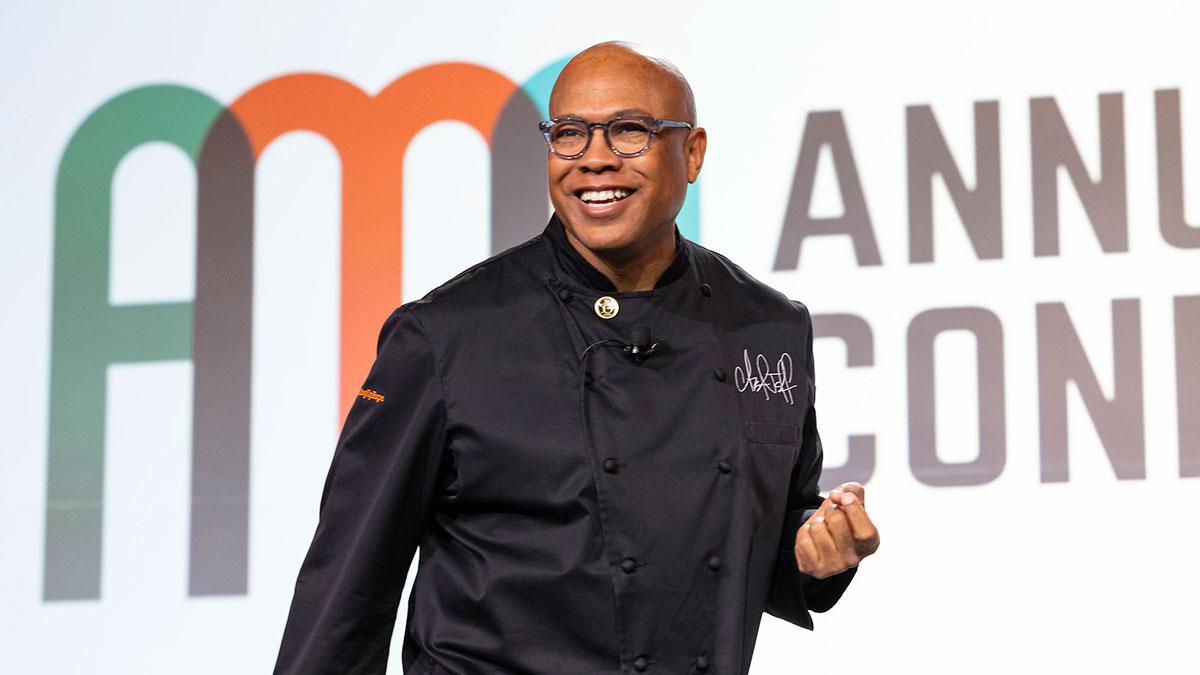By Carol Abel, Vice President, Education Program Development, Food Marketing Institute
 As industry leaders, you face enormous challenges, and next to the financial burdens associated with running your businesses effectively and efficiently, you tell us that providing health care to your employees is paramount. The second-biggest anxiety among food retailers that’s expected to dominate attention remains the job market. Staffing, hiring, retention and wages are ranked second in the 2016 FMI U.S. Food Retailing Industry Speaks “Worry Index,” while competition from traditional and non-traditional food retailers came in third.
As industry leaders, you face enormous challenges, and next to the financial burdens associated with running your businesses effectively and efficiently, you tell us that providing health care to your employees is paramount. The second-biggest anxiety among food retailers that’s expected to dominate attention remains the job market. Staffing, hiring, retention and wages are ranked second in the 2016 FMI U.S. Food Retailing Industry Speaks “Worry Index,” while competition from traditional and non-traditional food retailers came in third.
Financials, stiff competition and job market woes generated unfavorable headlines in April for the greater retail industry, as evidenced by one Wall Street Journal blogger’s post on April 7: “More jobs were lost in the beleaguered retail industry than any other over the past two months, prompting economists to warn that the number of jobs available at brick-and-mortar stores may have peaked.” Furthermore, analysts have suggested that the deflationary environment’s impact on food retail margins isn’t giving traditional grocers much cover.
I’m confident food retailers will maintain their resilience in the face of environmental and economic forces, arguably since they have some control over the job market when it comes to retention. So how do you quantify the value of your employees? In terms of professional development, we’ve challenged our FMI Future Leaders planning committee to help us create a program in June that will bring our community together and cement leadership skills. As leaders, you’ll be the ones to determine what types of benefits you offer that go beyond traditional health care; how you reward your employees for performance and loyalty; and ultimately who will drive your business further and foster the next generation of talent.
FMI’s CEO recently addressed congressional staffers at a March 29 briefing on a foster youth jobs program saying, “We simply can’t afford to leave anyone behind or any resource untapped. Too many miss amazing opportunities simply because we can’t find a way to get our foot in the door or aren't being guided to the right door to stick our foot in. The grocery industry feels a responsibility to not only offer that open door, but to seek out that next generation of leaders, whoever they may be.” It’s true that many executives on FMI’s board of directors started out as baggers and stockers.
For these reasons, FMI is refocusing and redoubling its energy on its Future Leaders eXperience program. The event is designed as a learning laboratory to offer cross-functional, cross-company and cross-industry interactions. The unique format cements networking opportunities and aims to create long-lasting relationships. While participants hone management skills and digest valuable industry content, they will develop the collaborative tools they’ll need to take on the responsibilities and opportunities of industry leaders in the 21st century.
Our industry is an incubator for mentoring opportunities, which is why FMI continues to invest in the power of storytelling via its awards and thought leadership. In particular, FMI recognizes store managers who are championing company and store goals; advising and motivating associates; investing in in-store programs that improve customer service; and improving community relations. These stars in our industry reflect the spirit of the 3.4 million people we employ. In the near term, FMI will be evaluating ways in which it approaches on-demand, online training and also offering more intimate events for food retailers to meet specific goals in order to stay relevant and challenged in their field.
We have an opportunity together to prove the naysayers wrong and invest in the talent that will build our future.


 Industry Topics address your specific area of expertise with resources, reports, events and more.
Industry Topics address your specific area of expertise with resources, reports, events and more.
 Our Research covers consumer behavior and retail operation benchmarks so you can make informed business decisions.
Our Research covers consumer behavior and retail operation benchmarks so you can make informed business decisions.
 Events and Education including online and in-person help you advance your food retail career.
Events and Education including online and in-person help you advance your food retail career.
 Food Safety training, resources and guidance that help you create a company food safety culture.
Food Safety training, resources and guidance that help you create a company food safety culture.
 Government Affairs work — federal and state — on the latest food industry policy, regulatory and legislative issues.
Government Affairs work — federal and state — on the latest food industry policy, regulatory and legislative issues.
 Get Involved. From industry awards to newsletters and committees, these resources help you take advantage of your membership.
Get Involved. From industry awards to newsletters and committees, these resources help you take advantage of your membership.
 Best practices, guidance documents, infographics, signage and more for the food industry on the COVID-19 pandemic.
Best practices, guidance documents, infographics, signage and more for the food industry on the COVID-19 pandemic.
